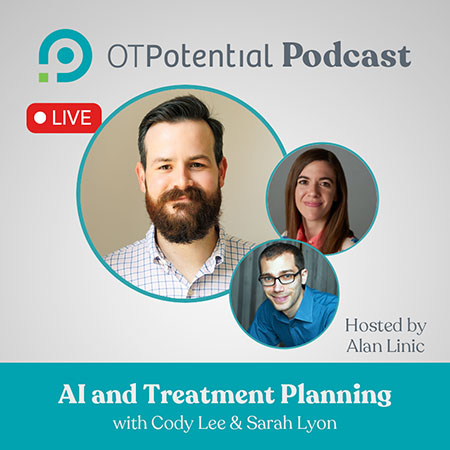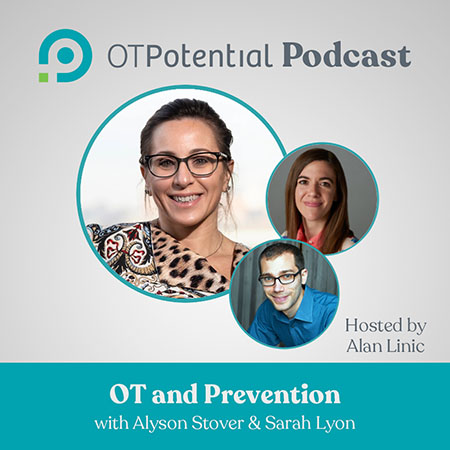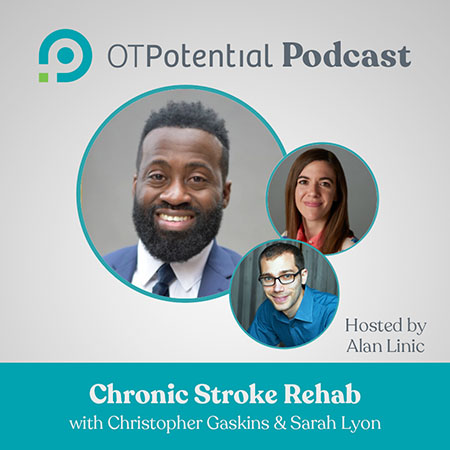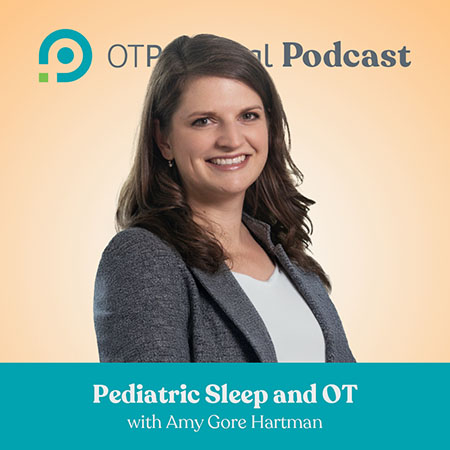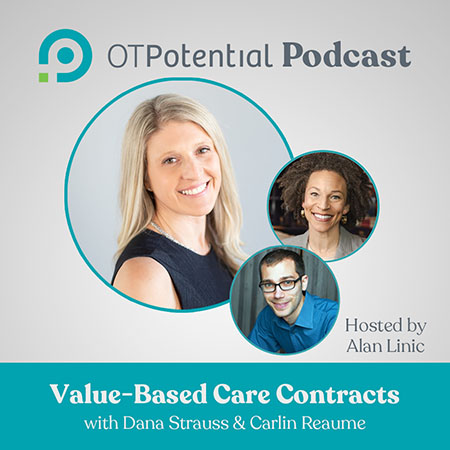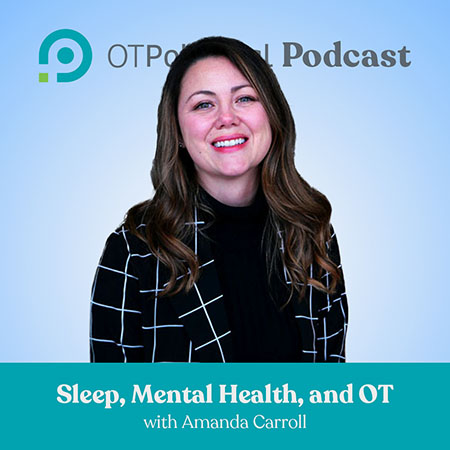Earn 1 hour of continuing education by joining OT Potential after taking this course.
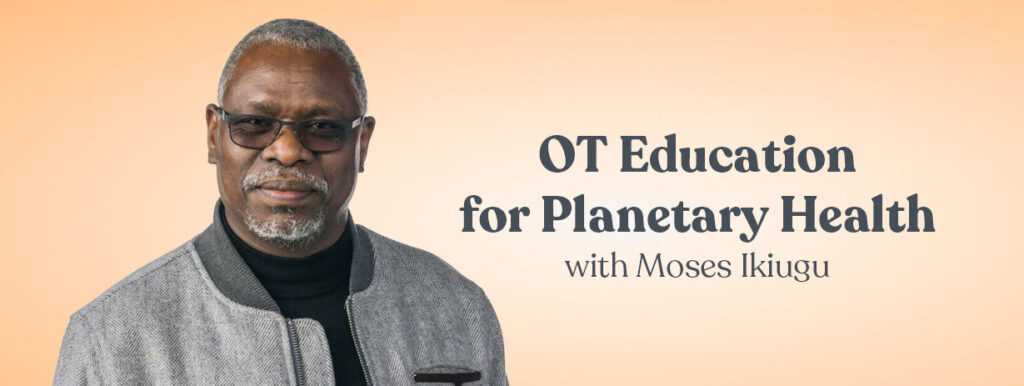
Listen: Apple | Spotify | YouTube
What does planetary health have to do with occupational therapy?
The author’s of this week’s article argue that engagement with environmental sustainability is foundational for our profession.
The authors aim to help OT students and professionals translate environmental awareness to practical action. They theorize 3 skills to do so:
- Clinical reasoning
- Bi-directional questioning
- Interprofessional education.
To help us unpack this, we are excited to welcome to the podcast Moses Ikiugu, PhD, OTR/L, FAOT. Dr. Ikiugu has been a pioneer in connecting OT practice to global health. He’ll share how his own query into the area has influenced his own work as an OT educator—and the practical implications for your own OT practice.
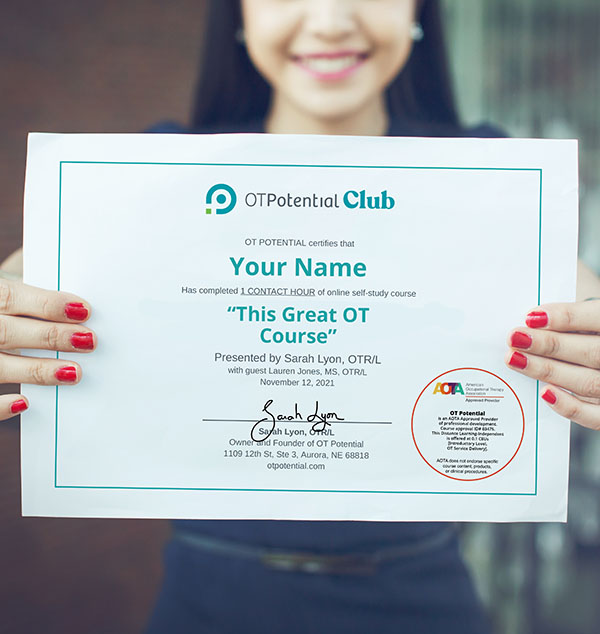
Earn 1 hour of continuing education
1. Listen to the podcast for free.
2. Sign up for the OT Potential Club.
3. Pass the quiz and download your certificate!
Primary Journal Article Explored
When you log in, be sure to check out the OT Potential Club’s written breakdown of the following research article. Then, share your questions and thoughts with fellow practitioners.
Hess, K. Y., & Rihtman, T. (2023). Moving from theory to practice in occupational therapy education for planetary health: A theoretical view. Australian occupational therapy journal, 10.1111/1440-1630.12868. Advance online publication.
Supporting Research and Journal Articles
- Occupation and Environmental Sustainability: A scoping review
- Education for Sustainable Health Care: From Learning to professional practice
Learning Objectives
- You will be able to recognize the components of “environmental reasoning” a form of clinical reasoning to be taught to novice OTs.
- You will be able to identify the components of bidirectional questioning, a skill that was proposed to be taught to OT students.
Supplemental Materials
- David Orr Quote!
- OTs for Environmental Action
- Glasgow Climate Pact, United Nations
- Building Climate Resilient Health Systems, World Health Organization
- Occupational therapy and environmental sustainability (2015)
- Occupation and environmental sustainability: A scoping review (2020)
- “I teach it because it is the biggest threat to health”: Integrating sustainable healthcare into health professions education (2020)
- Fulfilling a new obligation: Teaching and learning of sustainable healthcare in the medical education curriculum (2019)
- Sustainability Matters: Guiding Principles for Sustainability in Occupational Therapy Practice, Education and Scholarship
Agenda
Intro (5 minutes)
Breakdown and analysis of journal article (5 minutes)
- What is Planetary Health?
- What does planetary health have to do with OT?
- Planetary Health and OT Education
- What was the purpose of this paper?
- Discussion
- Takeaways for OT practitioners
Discussion on practical implications for OTs (with Moses Ikiugu) (50 minutes)
- How did you first find OT?
- How did you become interested in OT and planetary health?
- You’ve been involved in multiple publications on OT and planetary health, including the The WFOT guiding principles on sustainability, how have these collaborations influenced your own teaching at South Dakota?
- What was your initial impression of this 2023 article?
- Do you find that there is “broad agreement” about the urgency of tackling sustainability in OT education? & What would you say to someone who is skeptical about the importance of this topic?
- What are some examples of how OTs can embed clinical reasoning into practice, in at a novice level (along the lines of reduce, reuse, recycle)?
- How can we begin to employ more complex clinical reasoning, through thinking about “people” “planet” and “profit”?
- The article called us to move beyond person-centered care to “climate-just person centered care”, which the authors called this “two-eyed seeing”. Was this a helpful concept to you? And, how can you see OTs utilizing it?
- What are some examples of interprofessional collaboration that have inspired you?
- Promoting planetary health in OT is hard, complex work. What keeps you motivated?
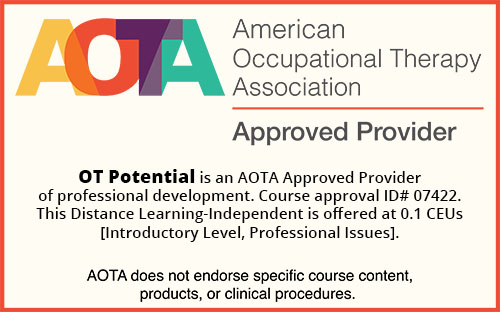
Instructional Methods/Registration/Special Needs Requests/Cancellation Policy
This course is an independent/self-study course delivered via podcast on iTunes, Spotify, Google Play & more.
If you need accommodations to take this course, please contact us and we will address your needs on an individual basis.
If we cancel a promoted course, event, live stream, or any other paid CEU offering prior to release, and you subscribe explicitly for said offering, you are eligible for a full refund if you did not complete and earn any other CEU quizzes or certificates during your subscription.
If a live webinar is cancelled that you signed up for, our system will automatically generate an email to you and if possible, we will inform you of the rescheduled date. Our most current webinar schedule will be found at: otpotential.com/live-ot-ceu-webinars.
Course Completion Requirements
In order to receive a certificate for this course, you must first participate in the podcast/webinar in its entirety. Then, you will need to take the quiz that will accompany the course and earn 75% or higher. If you pass, a certificate will be automatically generated and sent to your email. Quizzes for live (distance learning–interactive) webinars must be completed within 3 days of completing the webinar.
Target Audience/Educational Level
Our target audience is occupational therapy practitioners who are looking to learn about OT Education for Planetary Health. The educational level is introductory.
Financial and Non-financial Disclosures
It is the policy of OT Potential to disclose any financial and non-financial interest the provider or instructor may have in a product or service mentioned during an activity. This is to ensure that the audience is made aware of any bias of the speaker.
We here at OT Potential have no financial stake in this topic. Our guest, Moses Ikiugu, also has no financial disclosures.
Speakers
Moses Ikiugu
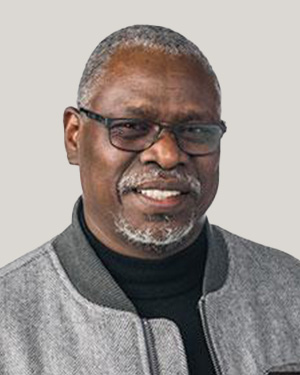
Moses N. Ikiugu, PhD, OTR/L, FAOTA Professor, Occupational Therapy University of South Dakota I received a diploma in occupational therapy from Kenya Medical Training College, Nairobi; diploma in counseling psychology from the Amani Counseling Center and Training Institute, Nairobi, Kenya; Bachelor of Arts degree in psychology and Master’s degree in counseling psychology from the United States International University, San Diego; and a PhD degree in occupational therapy from Texas Woman’s University, Denton, Texas.
Prior to joining the occupational therapy faculty at The University of South Dakota in 2005, I was an assistant professor in the occupational therapy program at the University of Scranton in North East Pennsylvania. Read full bio.
Sarah Lyon, OTR/L

Sarah’s passion is helping fellow OT practitioners translate evidence into daily practice. Sarah earned her BA in religion from St. Olaf College, then earned her master’s degree in occupational therapy from New York University in 2011. Since
then, she’s worked in numerous facilities, including a critical access hospital, an acute trauma hospital, and a state inpatient psychiatric hospital. Sarah is the founder/owner of OT Potential. Read more about OT Potential here.
This course was designed to meet your continuing education requirements
We designed the courses in the Club to meet the requirements for “online” and “independent/self-study” courses. To verify the requirements from your specific state (within the US), check out our post, OT Continuing Education Requirements. If you are outside of the United States and have questions, please contact us.
We are proud to be an AOTA Approved Provider and to meet the requirements for your NBCOT renewal.
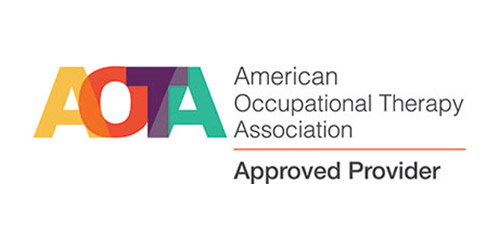
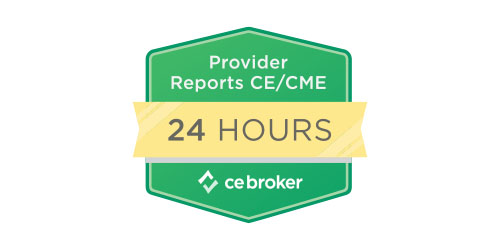
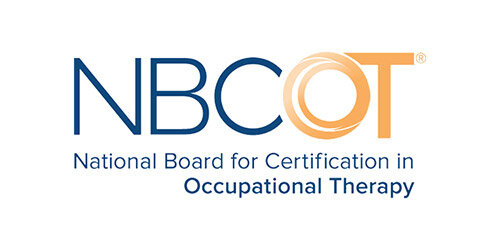
See our other OT courses!
OT Education for Planetary Health • OT Potential
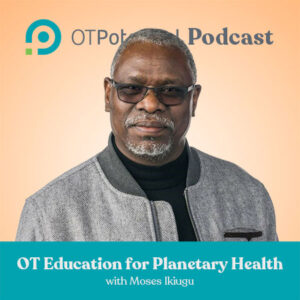
Today we’ll be covering “OT Education for Planetary Health.” We’ll look at new research and discuss it with Moses Ikiugu.
Course Provider: Organization
Course Provider Name: OT Potential
Course Provider URL: https://otpotential.com/
Course Mode: Online
Start Date: 2023-07-10
Duration: 01:00:00
Repeat Count: 5
Repeat Frequency: Yearly
Course Type: Subscription
4.91

